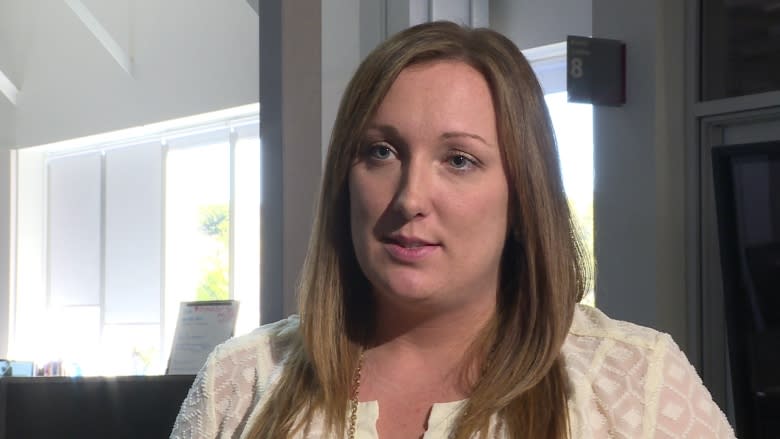Safe injection site needed in Nova Scotia, says prescription drug activist
An advocate for victims of prescription drug overdoses says the time is right for Nova Scotia to establish a safe injection site for illicit drug users.
Amy Graves says the province needs a place such as Vancouver's Insite, which opened its doors back in 2003. The facility offers drug users access to clean equipment, medical care, counselling and recovery help.
"We do not currently have a site like this, and with the arrival and influx of fentanyl and other fentanyl analogues, I think it's more important now than ever to have accessible harm-reduction services," Graves said.
"There's a lot of evidence supporting the use of these sites, and they are being implemented across Canada in various cities. I don't know how much more research needs to take place to know that they would be helpful."
Janet Bickerton of the Ally Centre in Sydney, which provides anonymous testing for blood-borne diseases and operates a needle exchange program, agrees safe injection sites are critical to help prevent more opiate deaths.
But she isn't sure Insite's model is the best one for Nova Scotia.
"We do need safe injection sites, but they have to look different here. They have to be more embedded in existing community organizations and places where people are," the Cape Breton nurse said.
The province says it is exploring such harm-reduction models as part of its new plan to grapple with opioid use and overdose.
Graves founded a group called the Get Prescription Drugs Off The Street Society six years ago after her brother, Joshua, died of an overdose. She's been lobbying the government for prescription drug reform ever since.
'The issue is moving east'
Graves welcomes Nova Scotia's plan to tackle the opioid crisis, but she says much more still needs to be done.
Under Nova Scotia's opioid use and overdose framework released this week, pharmacies will begin on Sept. 1 to distribute a medication called naloxone that has the potential to save lives in the event of opioid overdoses. Recipients won't need to pay or to present a prescription or identification.
The government also says it wants to reduce the number of opioid prescriptions by increasing access to alternative pain management and helping primary care providers establish new prescribing practices.
There is an education component to raise greater awareness about the risks involved with abusing opioids, and the province will track overdose numbers and post them monthly on a government web page.
"We may not be seeing the opioid use and overdose at the same levels here in Nova Scotia as they are seeing in other parts, particularly the western parts of Canada," Health Minister Randy Delorey said in announcing the plan. "But we do know that the issue is growing and it is moving east."
'It's like we can't keep up'
Graves said she's glad the province plans to increase monitoring of the problem and publish monthly reports of overdose deaths.
She said the government plan contains "a lot of great points," but that there's also "a lot of using the terms 'exploring opportunities' or 'looking into' where I would have hoped to see more concrete action plans."
Graves is discouraged by the pace of reform.
"It's just frustrating and it's disheartening to see how slow progress is made and how quick the crisis has evolved," she said. "It's like we can't keep up."
May reach 3,000 deaths
There were 54 acute opioid overdose deaths in Nova Scotia last year, according to provincial statistics. Four of those deaths involved illicit fentanyl and three more involved another powerful synthetic opioid known as U-47700.
So far this year, there have been 24 confirmed deaths and five probable deaths from opioid toxicity in the province. Across the country, the death toll could top 3,000, Canada's chief public health officer has said.



